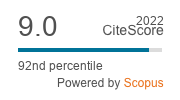Inflammatory bowel diseases (IBD) are idiopathic diseases of the gastrointestinal tract characterised by recurrent inflammation that require lifelong treatments. It has been shown that certain strains of lactic acid bacteria (LAB) can produce specific health-promoting compounds in foods or in the gastrointestinal tract that can in turn prevent and/or treat IBD. This study was designed to evaluate the possible therapeutic potential of soymilk fermented by the riboflavin-producing strain Lactobacillus plantarum CRL 2130 in a trinitrobenzene sulfonic induced colitis mouse model. Mice that received soymilk fermented by L. plantarum CRL 2130 showed a decrease in weight loss, lower damage scores in their large intestines, lower microbial translocation to liver and decreased cytokines levels in their intestinal fluids compared to animals that received unfermented soymilk or soymilk fermented by a non-riboflavin-producing L. plantarum strain. This is the first report that demonstrates that a riboflavin-producing LAB was able to prevent experimental colitis in a murine model.
RESEARCH ARTICLE
Evaluation of the effect of soymilk fermented by a riboflavin-producing Lactobacillus plantarum strain in a murine model of colitis
R. Levit Related information
1Centro de Referencia para Lactobacilos (CERELA-CONICET), Chacabuco 145, T4000ILC San Miguel de Tucumán, Tucumán, Argentina.
, G. Savoy de Giori Related information1Centro de Referencia para Lactobacilos (CERELA-CONICET), Chacabuco 145, T4000ILC San Miguel de Tucumán, Tucumán, Argentina.
2Cátedra de Microbiología Superior, Facultad de Bioquímica, Química y Farmacia, Universidad Nacional de Tucumán, Calle Batalla de Ayacucho 471, 4000 San Miguel de Tucumán, Tucumán, Argentina.
, A. de Moreno de LeBlanc Related information2Cátedra de Microbiología Superior, Facultad de Bioquímica, Química y Farmacia, Universidad Nacional de Tucumán, Calle Batalla de Ayacucho 471, 4000 San Miguel de Tucumán, Tucumán, Argentina.
1Centro de Referencia para Lactobacilos (CERELA-CONICET), Chacabuco 145, T4000ILC San Miguel de Tucumán, Tucumán, Argentina.
, J.G. LeBlanc Related information1Centro de Referencia para Lactobacilos (CERELA-CONICET), Chacabuco 145, T4000ILC San Miguel de Tucumán, Tucumán, Argentina.
*leblanc@cerela.
*leblanc@cerela.
Beneficial Microbes: 8
(1)- Pages: 65 - 72
Published Online: November 22, 2016
Abstract
2022 Journal Impact Factor
5.4
source: Journal Impact Factor 2023™ from Clarivate™

Institutional Offers
For institutional orders, please contact [email protected].
-
A.A. Hibberd, C.C. Yde, M.L. Ziegler, A.H. Honoré, M.T. Saarinen, S. Lahtinen, B. Stahl, H.M. Jensen and L.K. Stenman
-
E.E. Blaak, E.E. Canfora, S. Theis, G. Frost, A.K. Groen, G. Mithieux, A. Nauta, K. Scott, B. Stahl, J. van Harsselaar, R. van Tol, E.E. Vaughan and K. Verbeke
-
K. Venema, J. Verhoeven, C. Beckman and D. Keller
-
E. Arvidsson Nordström, C. Teixeira, C. Montelius, B. Jeppsson and N. Larsson
-
J.E. Haarhuis, A. Kardinaal and G.A.M. Kortman
-
E.E. Blaak, E.E. Canfora, S. Theis, G. Frost, A.K. Groen, G. Mithieux, A. Nauta, K. Scott, B. Stahl, J. van Harsselaar, R. van Tol, E.E. Vaughan and K. Verbeke
-
K. Lippert, L. Kedenko, L. Antonielli, I. Kedenko, C. Gemeier, M. Leitner, A. Kautzky-Willer, B. Paulweber and E. Hackl
-
K. Tsilingiri and M. Rescigno
-
M. Ozen and E.C. Dinleyici
-
Y. Kobayashi, T. Kuhara, M. Oki and J.-Z. Xiao



